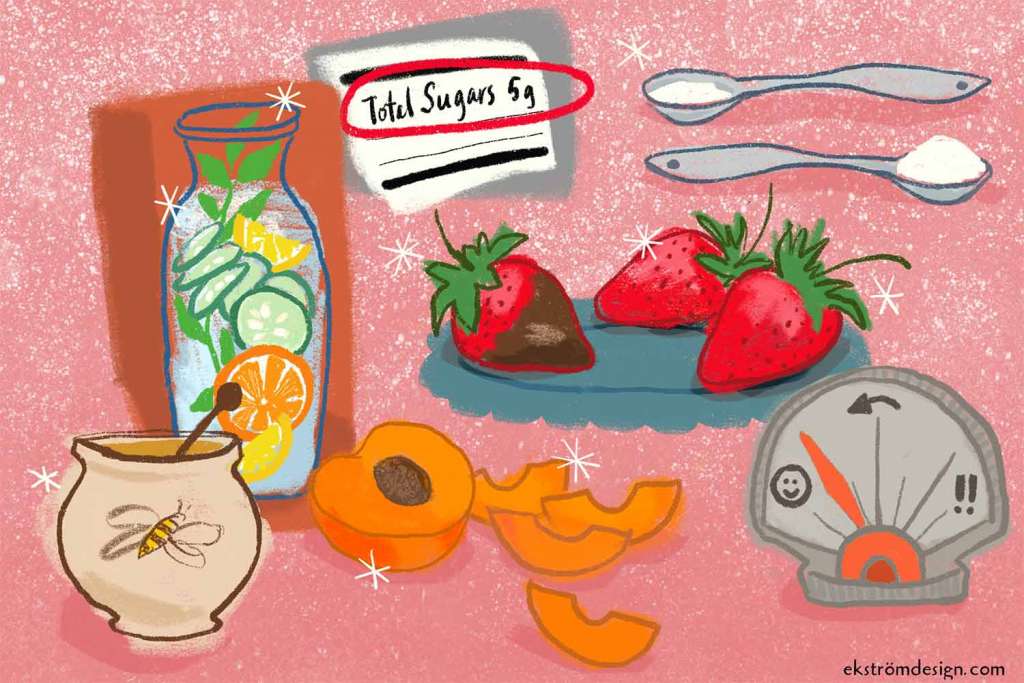5 Natural Ways to Boost Fertility

For many, becoming a parent is one of life’s most special gifts. Yet it isn’t until we’re ready to start a family that we discover that getting pregnant may not be as easy as we’d thought. It generally takes couples an average of 6 to 12 months to successfully conceive, and according to the CDC, 2 million couples in the U.S. struggle with infertility.
While some causes of infertility are unavoidable, studies show that lifestyle factors like what we eat can be a major cause of fertility challenges. Here, our Director of Nutrition Lindsey Kane channels her previous experience coaching couples struggling with infertility to share what a fertility-boosting diet and lifestyle looks like for women.
Focus on Good Fats
Load up on inflammation fighting omega-3 fatty acids, such as salmon, sardines, avocados, nuts, and seeds. These foods support healthy hormone regulation and may help reduce the risk of infertility. Good fats also help to maintain glycemic control, promote blood flow to reproductive organs, and support the absorption of essential nutrients like vitamins A, D, E, and K.
More Plants, Less Meat
Studies have found that switching out as little as 5 percent of animal protein in your diet to plant-based proteins can reduce the risk of ovulatory infertility by more than half. Fruits and vegetables are loaded with antioxidants that help protect against the free radicals that can cause cell damage to the reproductive system and female eggs. Make an animal-based protein exception at breakfast, though, and put an egg on it. Eggs are full of choline, an important nutrient for pregnancy that isn’t found in many foods. In fact, egg yolks happen to be one of a very select few food sources that contain choline. Pro tip: Aim for iron-rich sources of plant-based proteins, like lentils, beans, and spinach. Serving them with a squeeze of citrus helps your body absorb the iron.
Move Your Body, But Not Too Much
One of the many benefits of exercise is increased fertility. A sedentary lifestyle is associated with a higher risk of infertility, and one study found infertility risk dropped 5 percent for every hour spent exercising. It’s important to listen to your body, practice joyful movement, and consult your doctor when it comes to exercise. Overdoing it with excessive high-intensity workouts can decrease fertility in certain women.
Take Time For Yourself
Beyond diet, carving out time for self-care and getting a good night’s sleep are essential to reproductive health. When you’re stressed, your body releases the stress hormone cortisol, which can cause insulin resistance and raise your blood sugar, ultimately impacting hormonal health.
Upgrade Your Carb Game
Focusing on unprocessed, whole foods that are packed with plenty of fiber and nutrients, such as whole grains, vegetables, fruits, and legumes, while keeping excess sweets and added sugar to a minimum is essential. Carb quality counts, and a diet comprised of excess sugar leads to a rise in glucose and insulin. At high levels, insulin can interfere with hormone homeostasis disrupting menstrual cycle regularity and reproductive vitality. Pro tip: Avoid artificial sweeteners, which are stressors on your system. They create a cortisol response that interferes with reproductive hormones and can inhibit ovulation.
What about the mixed information around the effects of soy and dairy on fertility?
Research shows that the only soy product that should be limited is highly-processed soy, such as soy protein isolate, which can cause an influx of highly-concentrated estrogen-mimicking phytoestrogens. Whole food sources of soy like edamame, and fermented sources like tempeh and miso, are all safe to eat.
When it comes to dairy, the hormones found in non-organic products are what gives milk a bad rap. Sticking to organic, whole fat sources has been shown to decrease infertility. Fermented dairy, such as yogurt or kefir are even better options since they’re easier to digest and offer gut-friendly, immune-boosting probiotic microbes that could eventually get passed on to your child during birth.









